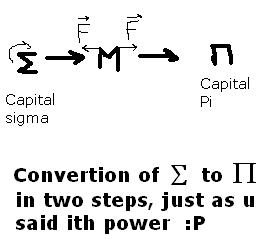[12] [17] [17] [15] [15]
LET \left(a_{in} \right)_{n\geq 1} i\epsilon \left\{1,2,3,.,p \right\} sequences of strictly real pozitive numbers. Prove that:
( \sum_{k=1}^{n} \frac{1}{ \prod_{i=1}^{p} a_{ik} } ) ( \sum_{k=1}^{n}( \sum_{i=1}^{p} a_{ik} )^{p} ) \geq p^{p} \cdot n^{2}
-
UP 0 DOWN 0 0 6

6 Answers
Not every horrible looking problem has long answer.
convert all \Sigma to \prod by AM-GM. you get the answer in just 2 lines. :D
yeah this is simple problem as ith power said
(Σaik)p≥ ppπaik AM ≥GM
so it reduces to
given≥pp (Σ(1/Πaik)Σπaik )
now ΣΠaik ≥n(p√ΠΠaik) .............1
and ΣΠ1/aik≥n(p√ΠΠ1/aik) ..............2
both 1 and 2 from AM GM inequality
multiply 1 and 2
ie (Σ(1/Πaik)Σπaik )≥n2
now put this in org eq
given ≥ppn2
